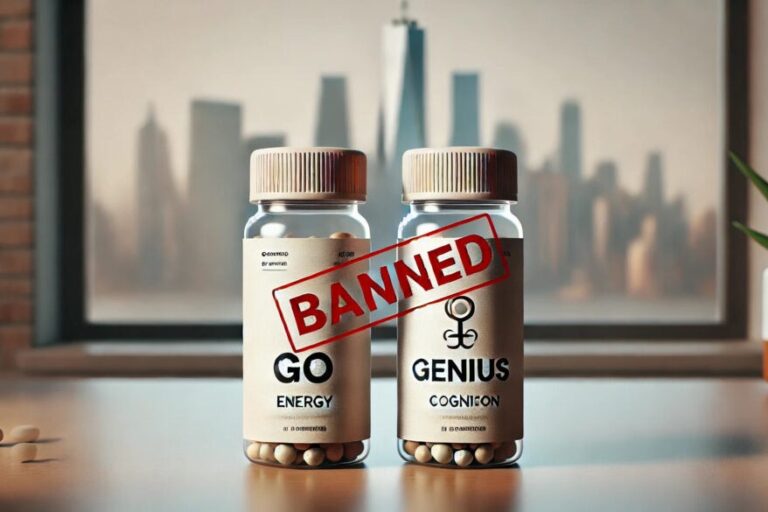New York's Office of Cannabis Control (OCM) recently ordered the suspension of sales of two caffeinated THC products by Hudson Cannabis and its brand 1906.
The two affected product lines, Go and Genius, have been marketed for specific benefits since early 2023, according to the New York Post.
Related article: Must have hurt: Unlicensed cannabis store owner slapped with $9.5 million fine
“Go” was marketed as an energy booster containing 80 mg caffeine, 2 mg THC, and 5 mg CBD per serving, while “Genius” contained 20 mg caffeine, 2.5 mg THC , and formulated as a cognitive enhancer containing 5 mg of CBD. Contains 5mg each of CBD and CBG.
OCM's quarantine notice, issued in July, asserts that the product's formulation “may endanger public health or safety,” and officials state that “the ingredients used in the product are not used in cannabis products.” It's not allowed to do that.”
The ruling raised concerns in the industry, especially since these products are legally sold in other states.
Hudson Cannabis Challenges State Prohibition
Hudson Cannabis is challenging the order, arguing that its products not only comply with the law but also have a proven track record of safety.
The tablets contain caffeine, THC, CBD, and in the case of Genius, the cannabinoid CBG. Melanie Dobson, co-founder of Hudson Cannabis, said the decision to ban these products defies logic. Dobson told the Post that he was “surprised by the state's decision to quarantine a product that has been on the market for more than 18 months,” adding that the product had “zero reports of adverse effects” and that multiple states have He pointed out that it is sold legally.
Matthew Schweber, a lawyer for Nuka Enterprises, which owns the 1906 brand, called OCM's position “arbitrary and capricious.” Schweber said OCM is interpreting the state's regulations in a way that limits artificially added caffeine while allowing “natural caffeine” in products such as coffee and tea. .
“OCM can't say exactly which prohibitions trigger caffeine? Does caffeine increase the 'potency' of cannabis?” It increases its “toxicity” or “addiction potential” mosquito? Does that create an 'unsafe combination'?'' Schweber asked, adding that regulators have no documented evidence of any risk from combining caffeine and THC.
Mixed signals on caffeine in cannabis products
The ban has also raised questions among industry observers about regulatory consistency. Competitive products such as Harney Brothers' cannabis-infused nitro coffee contain significantly higher levels of caffeine, as much as 225 mg per serving, but there is no limit.
Osbert Orduna, CEO of Cannabis Place in Queens, said, “The 1906 product is very popular with all age groups and is a big hit. “We also explained why we attract a diverse clientele, including professionals and fitness enthusiasts.” A convenient tablet-based format.
Read next:
Jacket image created with AI.
Market news and data powered by Benzinga API
© 2024 Benzinga.com. Benzinga does not provide investment advice. Unauthorized reproduction is prohibited.

